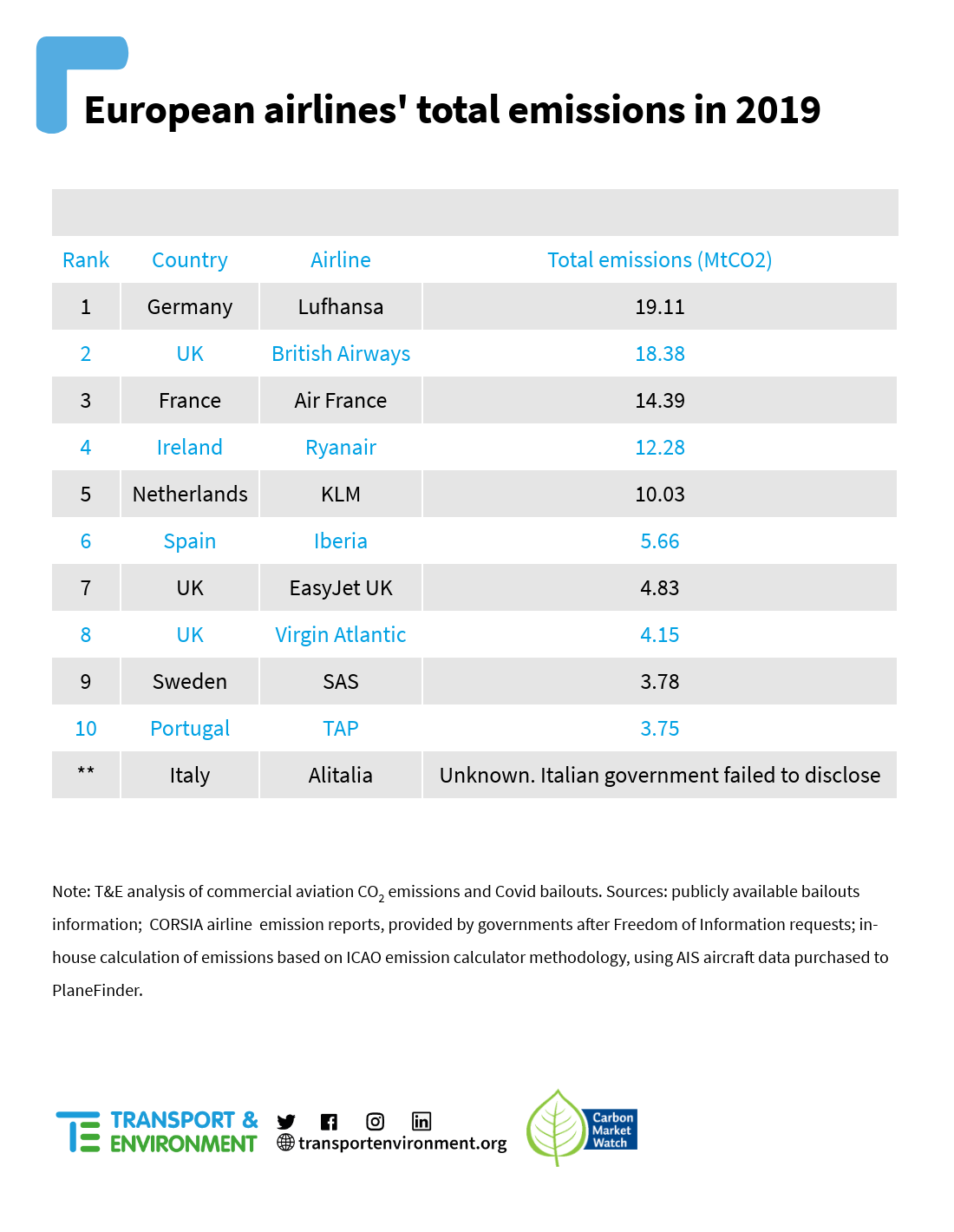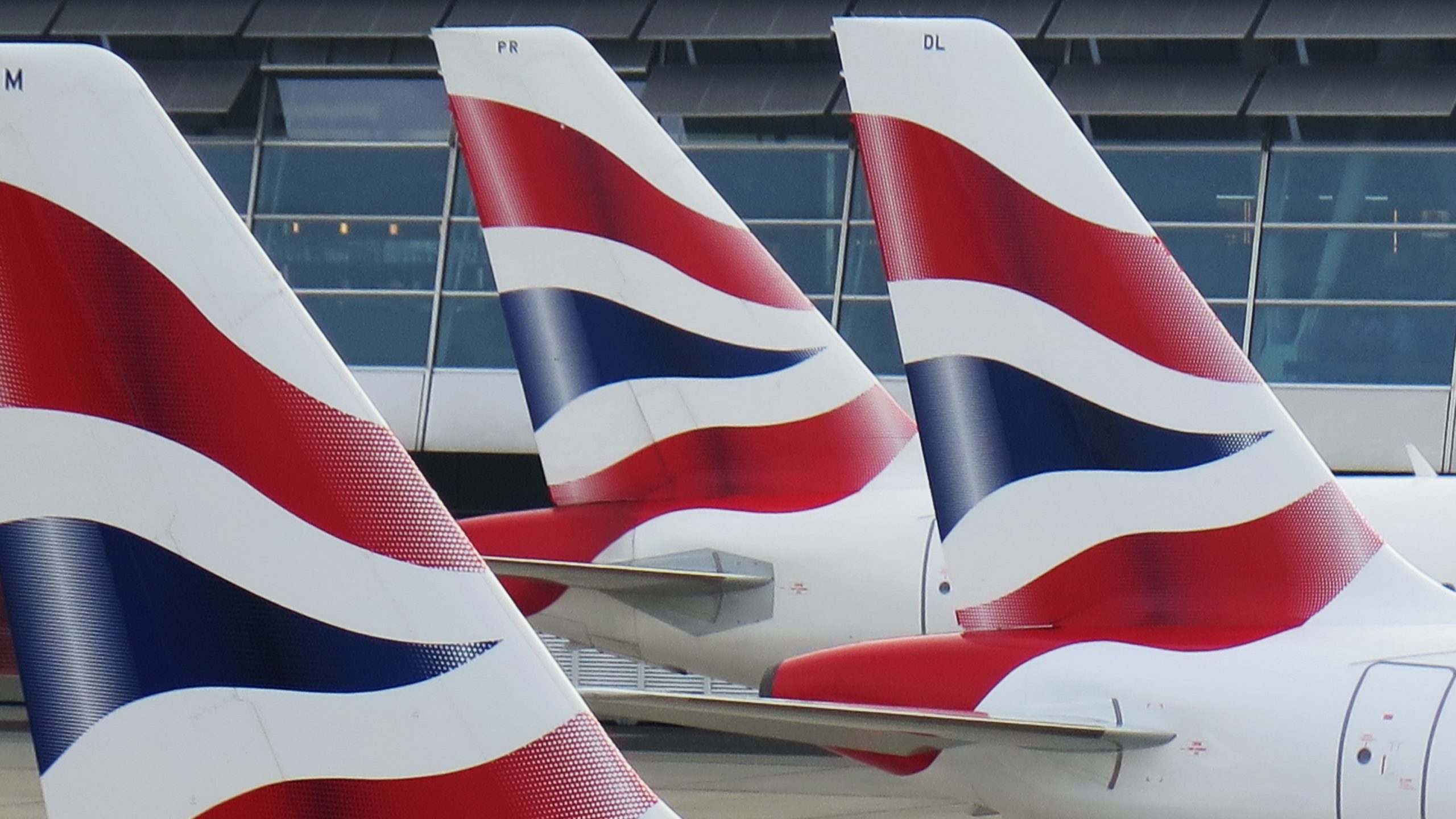

British Airways emitted as much CO2 as all the vans on the UK’s roads, new data shows
Three British airlines - British Airways, EasyJet and Virgin Atlantic - are among Europe’s biggest aviation polluters, official data shows. The information, based on flights in 2019, before the pandemic grounded planes, is the first time the total emissions of European airlines have been disclosed.[1] Transport & Environment (T&E) and Carbon Market Watch (CMW) compiled the data following Freedom of Information requests for official national statistics. British Airways’ CO2 emissions alone were similar to those of all of the UK’s vans.
Interested in this kind of news?
Receive them directly in your inbox. Delivered once a week.
British Airways is the second biggest airline polluter in Europe. Its flights emit some 18.4 million tonnes of CO2: similar to the emissions from all the vans on the UK’s roads.[2] EasyJet UK and Virgin Atlantic ranked 7th and 8th in the polluters’ table, with 4.8 and 4.2 million tonnes of CO2 respectively. Both airlines each produce more emissions than all of the UK’s buses and coaches combined.
Matt Finch, UK policy manager at T&E, said: “The UK’s aviation industry has an emissions addiction. Total CO2 pollution from UK international flights is the same as all of the UK’s vans and trucks. Now that the cat is out of the bag, we need a coherent plan to ensure that as the lockdown eases and flights increase, aviation does not derail the UK’s commitment to meeting its climate goals. 2019 should come to be seen as the peak in UK aviation emissions.”
Most aviation emissions are entirely unregulated. Under a global agreement, the Carbon Offsetting and Reduction Scheme for International Aviation (Corsia), airlines can pay to offset growth of carbon pollution. But a new European Commission study found that Corsia would be “unlikely to materially alter” the climate impact of air travel.
The limitations of Corsia are recognised by the government’s independent climate advisors, the Climate Change Committee (CCC). The CCC has recommended formally including emissions from international aviation and shipping in future carbon budgets. This would open the door to make sure that the UK implements its own actions to cut aviation emissions alongside Corsia. The UK government will imminently decide whether or not to accept the recommendation.
How to manage the UK’s aviation greenhouse gas emissions within the UK’s 2050 net-zero target is creating a major headache for the Department for Transport, which appears to have removed proposals to cut aviation emissions from its long overdue Transport Decarbonisation Plan.
Matt Finch concluded: “If the UK is serious about climate change it must take responsibility for its international aviation emissions and include them in our future climate budgets. International offsetting clearly doesn’t work. There are ways to cut aviation emissions, like increasing the use of sustainable aviation fuels. But until the government gets serious about tackling aviation emissions the industry won’t either.”
ENDS
Notes to editors:
[1] This is the first time international CO2 emissions of major European airlines – from extra-European and intra-European flights – have been compiled. T&E was granted access to the international emissions data by a number of EEA governments. However, as the Italian government failed to provide data, despite repeated requests, Alitalia’s total emissions remain unknown. Ryanair remains the No 1 emitter on flights within Europe.
[2] In 2018, UK emissions from trucks were 20.7 Mt CO2e, vans 19.4. Mt CO2e, and buses and coaches 3.2 Mt CO2e. Total UK emissions from international aviation were 36.7 Mt CO2e.